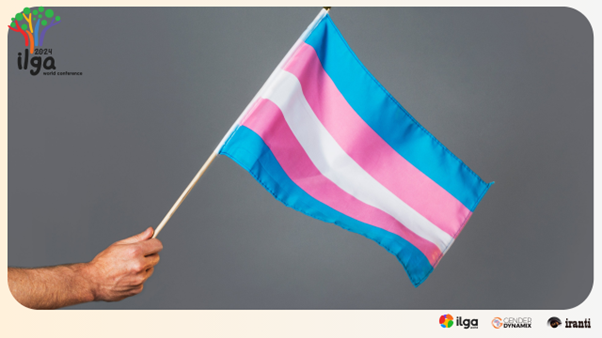
Discussions around Legal Gender Recognition (LGR) illuminated the unique challenges and opportunities from the perspectives of Kenya, the USA and the Asia Pacific region during a side event on LGR at the ILGA World Conference. ILGA Word alongside Iranti and Gender DynamiX are hosting the ILGA World Conference in Cape Town, South Africa.
The session was focused on understanding and sharing different legal gender recognition contexts globally. These discussions aimed to highlight the unique challenges and opportunities in each context regarding the legal recognition of gender identity.
Global Perspectives
Panellists represented a wealth of knowledge, each bringing a distinct viewpoint on how LGR is approached in their respective regions.
In Kenya, the panellist highlighted the ongoing struggles faced by transgender individuals in a legal framework that remains largely unresponsive to their needs. Despite a vibrant advocacy scene, laws and policies often fail to recognise non-binary identities, presenting significant hurdles for individuals seeking to change their legal documents to reflect their gender identity. Panellist discussed crucial loopholes in existing laws, such as the lack of specific legal procedures and protections against discrimination, leading to a long journey for transgender individuals fighting for recognition and equality.
In contrast, the USA has seen significant advancements in LGR at both state and federal levels. Panellists shared insights into the varied approaches adopted by different states, with some offering streamlined processes for changing gender markers on identification documents, while others maintain more stringent requirements. The discussion also addressed the ongoing legal battles to protect transgender rights, particularly in light of recent legislative efforts that threaten these gains. Panellists emphasised the importance of community advocacy and legal intervention in ensuring that transgender individuals can navigate the complexities of legal recognition.
The Asia-Pacific region provided a rich tapestry of experiences, illustrating how cultural contexts influence legal recognition. Panellists discussed countries with progressive laws that support gender affirmation, alongside those where significant barriers remain. They emphasised the importance of cultural competency in policymaking and the need for reforms that respect and protect transgender identities. The necessity of engaging local communities in advocacy efforts was highlighted, ensuring that policies reflect the voices and needs of those they affect.
Panellists collectively illuminated the various loopholes that exist within legal frameworks across different contexts. Common themes included the absence of comprehensive legislation, inadequate legal definitions, and the need for capacity-building among law enforcement and legal professionals to ensure better protection for transgender individuals.
Steps being taken to address these challenges were a focal point of the discussion. Panellists shared successful advocacy initiatives to reform existing laws, such as petitions for legal recognition and community outreach programs to educate the public and lawmakers about transgender rights. Collaboration between local and international organisations was emphasised as a vital strategy to leverage resources and amplify voices demanding change.
This side event underscored the urgent need for a cohesive global effort to secure legal gender recognition for transgender individuals. By sharing insights and experiences from Kenya, the USA, and the Asia-Pacific, the panellists reinforced the importance of solidarity in the fight for equality.
